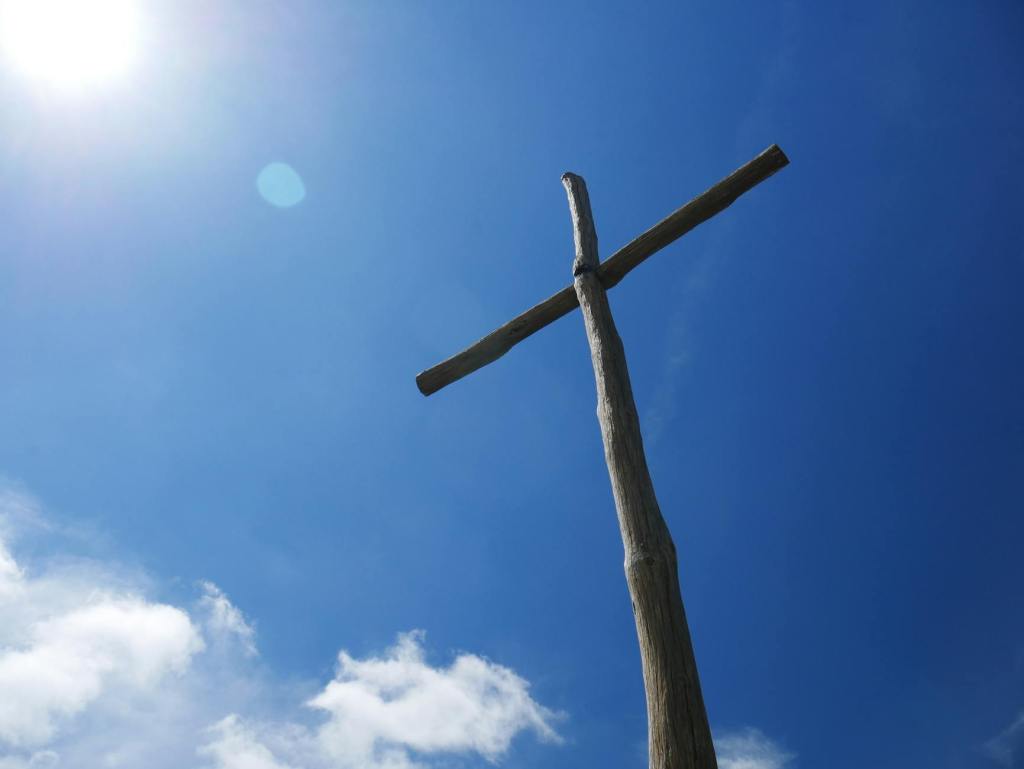The Twenty-fourth Sunday after Pentecost
November 12, 2023
Amos 5:18-24
The audio of this sermon can be found on this site’s podcast page. The video of the entire service can be found on Trinity Episcopapl Church’s YouTube Channel.
It’s always about this time of year, that parents start asking their kids what they want for Christmas. I have found this exercise to be both joyful and dreadful. Some of the things kids ask for get tossed out immediately. Pony? No. Another dog? Absolutely not.
And then some of the stuff they ask for, it’s like, really? You can ask me for anything you want, and that’s what you decided on? Of course, my kid isn’t like this. It’s all those other kids who have had their brains warped by YouTube. I mean, I just googled the best toy for Christmas 2023. The top result, and I’m not making this up, is a game called, “Taco Cat Goat Cheese Pizza.” Really. It’s just that inane. That’s what our kids are clamoring for. Taco Cat Goat Cheese Pizza. That’s what we want. Be careful when you ask your kids what they want for Christmas, it’s both a dreadful and a joyful routine we go through every year.
But it’s those emotions that I want to tap into today. It’s both those feelings the prophet Amos is dealing with. We get Amos, on the emotional level, even if you don’t know much about him. Now for those of you who don’t spend their days and nights pondering the ancient Israelite prophets, I’ll give you the refresher. Amos probably lived around 750 B.C. He was a farmer, but then God calls Amos to be a prophet, to speak God’s truth. Because God is so aggravated by the people of God. And no matter how many times God says to do the right thing, the people of Israel don’t do the right thing. Now, it looks like the people of Israel were doing the right thing. They were saying all the right prayers, they have all the right hymns, they gather on all the right days. But it’s just a big show. They’re not taking care of the widows and the orphans, the rich are getting richer and the poor are starving to death. They have the outward appearance of righteousness but it all stinks.
God says, “I hate, I despise your festivals, I take no delight in your solemn assemblies. Even though you offer me your burnt offerings and grain offerings, I will not accept them…Take away from me the noise of your songs; I will not listen to the melody of your harps” (Amos 5:21, 22a, 23). Don’t you love that? It’s like, God is putting his hands over his ears because he just can’t take their “holier than thou” racket. God is tired of their showing off.
And to make matters worse, the same people who are doing all of that, say that they want the Day of the Lord. They say they want God to appear. Like a parent dreading that big Christmas shopping trip to Target, God says, “really? That’s what you want?” Because the people don’t know what that entails. The Day of the Lord, Amos says, is a day of darkness, not light (Amos 5:20). The Day of the Lord, it’s like someone fleeing from a lion only to meet a bear. Like someone who leans up against a wall, and is bitten by a snake (Amos 5:19). The Day of the Lord is the Day of Judgment. And God, God is angry at how they spend all their time and energy doing the rituals, but not doing the right thing. You want the Day of the Lord? Amos is warning the people; you had better be ready for what you are asking for. Judgment.
This is one of the grand themes that runs throughout the entire Bible. Though we modern, sensible, enlightened Christians find it unpalatable. Think about it, we talk about wanting a closer relationship with God. We hear Christian music on the radio, about seeing God’s face and holding God’s hand. We read the Bible and take communion because we want to feel God’s presence. We say prayers to invite God into our hearts. This would be lunacy, maybe even idolatry to Amos. Amos is reminding the people of Israel that the Day of the Lord, God’s presence, is dreadful. What God brings is judgment. When wrongs will be made right, when the poor will be raised up, when the hungry will be filled, when justice will flow down like mighty waters (Amos 5:24). Judgment.
Like spoiled children compiling their Christmas wish lists, I think that modern Christianity has become all too cozy with God. We don’t know what we’re asking for. We’ve lost Amos’ sense of fear and reverence and awe and might and majesty. We’ve made the trade; we’ve traded justice for complacency. We spend our time thinking about how to pray and worship, rather than praying and worshiping. We come to our dignified churches and hear about this nice man who lived two thousand years ago who taught us how to be good people; instead of actually living as good people. We don’t want to come to church and hear about God’s dreadful presence and almighty power; we want to be entertained, to feel better about ourselves, to have something for the kids to do on Sunday morning, to get ready for work next week. What we really want, is the Taco Cat Goat Cheese Pizza version of Christianity and call it good enough. But in the words of Amos, “Alas for you who desire the day of the Lord!” (Amos 5:18a).
The Day of the Lord. It sounds so ominous, foreboding, awful. But only for those of us who have something to lose. Only for those of us who are asking for all the wrong things. Judgment is also good news. Again, think back to holy scriptures, judgment can be good. The Israelites are enslaved by the Egyptians; they cry out for judgment, and God frees the Israelites from their bondage. The people of God are dragged away to Babylon; they cry out to God for judgment, and God brings them back to Jerusalem. The saints of God cry out against Herod, that barbarian, for all his evil deeds; God executes judgment and Herod is eaten alive by worms (Acts 12:23). I did not make that up, it’s in the New Testament. Judgment can be good for those who are the losing side.
But what Amos does so brilliantly, is that he turns it all inside out. And warns the people that God’s judgment is also for the people of God. Just because they are Israelites, that does not mean they are free from judgment. Just because we are followers of Jesus, that does not mean that we don’t have to deal with God’s indignation. Just because we are good, decent, Episcopalians doesn’t mean that we don’t have some things to work on. The good news, is that God is fair. God shows no partiality and God judges everyone equally. God wants our world to flow with the mighty waters of justice and fairness and peace and equality. Even if we put on the right show, say the right words, appear to be good, we might just be the problem. That is God’s righteous judgment.
That’s what the parable of the ten bridesmaids is getting at. And I know we find this parable unsavory. It seems so stark, so judgmental. But there is grace here. Think about it – the parable is about a wedding. A bridesmaid and a bridegroom. It’s not a funeral, it’s a party. The vision that Jesus lays out for God’s final judgment is a celebration, a festival, the joyful union between God and God’s people. I would like to think that I am one of those wise bridesmaids, ready for God.
But I have to admit, that there are parts of me that are more like the foolish bridesmaids. There are parts of my life that remain hidden in the dark. Parts of my life that need to be sorted out by God’s dreadful judgment. I buy cheap clothes from people who work at poverty wages. I financially benefit from corporations who wreak havoc on the environment. I am given to anger and jealousy. I am highly competitive, to the point where I get in my own way. Rather than thinking about these ten bridesmaids as ten different people, I have been thinking about them as different aspects of my life. Some of me is ready for the Day of the Lord, some of me is not. Some of me is celebrating the grace of God, some of me cowers at the thought of God’s righteous judgment. Part of me joyfully awaits the Lord God. Part of me know that if the Lord were to appear right now, he would say to me, “I do not know you.”
So it all goes back to where I started. When I kneel here, at my prayer desk and say those words, “thy kingdom come,” do I really know what I’m asking for? And am I ready for that gift? Is my soul ready for both that grace and that judgment? So mostly what I want to say today is this – be careful what you pray for. Be careful what you ask for. And when you say that you want to be close to Jesus, be ready for what that means. It will be grace, it will be joy, but it will also mean that all the parts of us that we are trying to hide will be found out. The Day of the Lord will be joy and grace, but you will never be the same.
References
Rutledge, Fleming. The Crucifixion: Understanding the Death of Jesus Christ. Paperback edition. Grand Rapids, Michigan: William B. Eerdmans Publishing Company, 2017.
Sonderegger, Katherine. Systematic Theology. Minneapolis, MN: Fortress Press, 2015.
Wright, N. T. Christian Origins and the Question of God. 2: Jesus and the Victory of God. Nachdr. Minneapolis: Fortress Press, 20.






Leave a comment